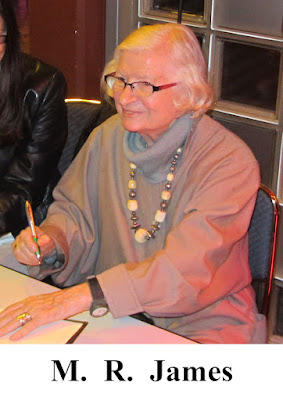HEREDITARY (2018), written and directed by Ari Aster.
When a story or film falls apart, we can examine this failure to understand why certain approaches work for us, while other methods do not. From this we can learn about craft, or, at the very least, gain insight into our own subjective responses.
Not every failure to connect is a failure of craft. I have read stories and seen films that did nothing for me, but only because of my own tastes and limitations; I could find nothing objectively wrong in their techniques. Yet in certain cases, things fall apart because of expectations established by the work itself, expectations that are then abandoned or evaded. In my view, HEREDITARY sets up hopes for one type of narrative, but then runs away from the implications of that narrative.
It seems to me that most narratives using the supernatural or the uncanny approach this use in two ways. (I say "most" because there will always be exceptions -- absurdist or surrealist narratives, for example, along with accounts of actual dreams, or fictions that simulate the effect of dreams.)
I call these two approaches intrusion and externalization.
In a story of intrusion, a person, family, or community is invaded by some uncanny or supernatural threat from outside the group. Stories of this kind are perhaps the most common, and they succeed or fail based on the skill and conviction brought to them by their creators.
On the other hand, in a story of externalization, a person, family, or community is faced by a threat that seems to reflect or echo conflicts within the group. These conflicts existed before the supernatural event began, or become most apparent when supernatural events force them to stand out. Either way, any firm line between inner conflict and outer manifestation can become difficult if not impossible to find.
In films, the master of this approach might be Bergman, but it shows up elsewhere with equal effectiveness in THE BIRDS, in LET'S SCARE JESSICA TO DEATH, and in THE INNOCENTS.
Inner conflicts need not be clear for externalization to work powerfully. We can recognize the isolating psychological struggles of JESSICA, the projected sexual anxiety of THE INNOCENTS, but the personal conflicts that drive THE BIRDS remain half-glimpsed, murky: they are not so much perceived as they are suspected. If anything, this makes THE BIRDS even more suggestive and haunting.
Because these two methods are both valid even as they set up different expectations, a story can succeed or fail by how it confronts the implications of its method. Craft and conviction matter, but so does honesty in following through.
Here is the danger:
A story of supernatural intrusion can reveal itself, gradually and with no loss of conviction or power, to be a story of supernatural externalization. But can a story that sets up expectations of supernatural externalization hold itself together, if it reveals that its conflicts were never actually internal, but were the results of manipulation from outside?
I would have to say, No, not likely.
Veering away from externalization to intrusion runs the risk of cheapening the human drama, the human pain, that fuelled the story in the first place. We empathize with suffering; we understand that we, too, have suffered in similar ways and will suffer again. If we are told, eventually, that this relatable pain is nothing but a plot device, then we might feel cheated.
This danger becomes even more stark when a narrative shows human pain with exceptional honesty and power. For example, the first half of the film HEREDITARY builds up a dread of mental illness that seeps from one generation to the next. It presents mental suffering and family tensions with an impact that, in better hands, might have rivalled THROUGH A GLASS DARKLY, but while Bergman adds uncanny personal visions to enhance the urgency of this mental crisis, HEREDITARY veers away from its intense honesty to show that this family struggle has been prompted and perpetuated by nothing more than melodrama.
In other words, HEREDITARY flees from its implications of human pain by using the supernatural not as a mirror, not as an extension or intensification of this pain, but as a replacement, an evasion. Suddenly, this pain is no longer something that we can all feel, that we can all fear, as it is in a Bergman film, as it is in THE INNOCENTS, in THE BIRDS, or in LET'S SCARE JESSICA TO DEATH; suddenly, this pain is the work of cliched movie villains.
To quote from the Sonnet 94 of Shakespeare: "Lilies that fester smell far worse than weeds." HEREDITARY fails drastically, infuriatingly, because it had set itself up as a powerful example of one type of story, only to veer away into something different, something less emotionally confrontational and much less dangerous.
Some viewers might call this evasion a lapse in judgment. I suspect a loss of nerve. Either way, I regret the death of something potentially good.













